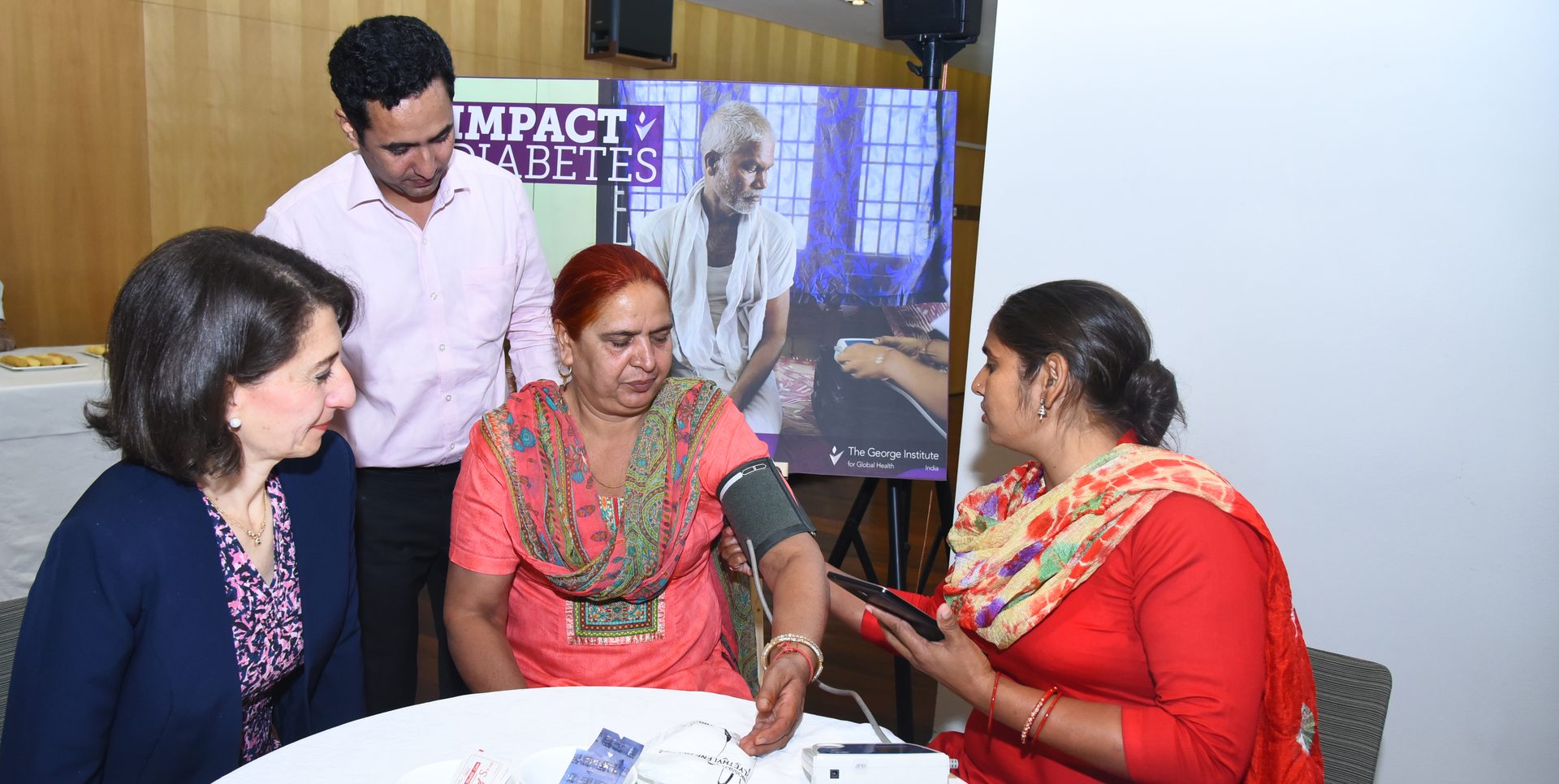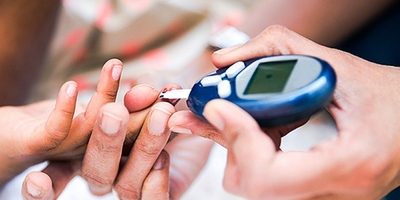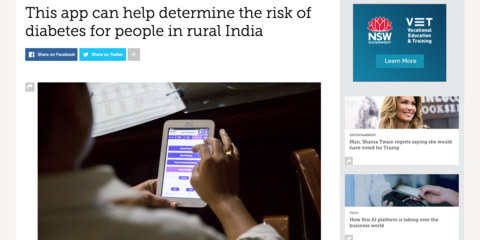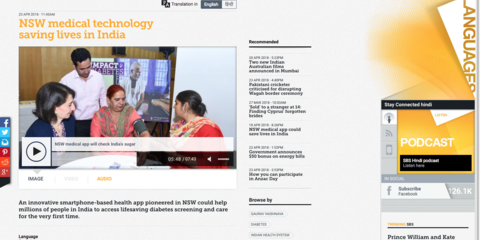
New app will have major impact on tackling diabetes in India
An innovative mobile device-based health app to enable people in India to access essential diabetes care has been launched by The George Institute for Global Health, India.
The ‘IMPACT Diabetes’ program was unveiled at an event in New Delhi today (Wednesday April 18th) attended by high profile guests including Hon. Gladys Berejiklian, Premier of NSW in Australia, Ms. Harinder Sidhu, Australian High Commissioner and Professor O.P Kalra the Vice Chancellor of the Pandit B.D. Sharma Institute of Medical Sciences, Rohtak.
Professor Vivek Jha, Executive Director of The George Institute for Global Health, India said: “Around 50 million people in India have type 2 diabetes and that number is growing every year. IMPACT Diabetes will help people living in rural areas to access timely, affordable and guideline-based healthcare in the community, reduce the risk of developing life-threatening complications and ultimately save lives.
“Digital technology coupled with using the experience and knowledge of local health workers. This is innovation at its best.”
Part of The George Institute’s ‘SMARThealth’ program, the IMPACT Diabetes project will train female community health workers, known as ASHAs, in the use of a smartphone app. They will then screen people in the communities, identify those with diabetes or at high risk of the disease, offer them lifestyle and diet advice, refer them to the doctor for drug treatment and follow up on their adherence to treatment and control.
The ‘SMARThealth’ program began in Australia in 2013 with a NSW Health-funded trial to pilot an electronic decision support tool for improving chronic care for Aboriginal people.
NSW Premier Gladys Berejiklian, who officially launched the ‘IMPACT Diabetes’ program, said: “In rural India alone, more than 25 million people have diabetes and the number is rising rapidly. Providing access to affordable, evidence-based and quality-controlled healthcare is a real game changer for these communities and I am so pleased to see our technology helping save lives across the world.”
“This is a NSW-India partnership that is going global and benefitting people who would otherwise miss out on the kind of lifesaving healthcare that we in NSW take for granted,” Ms Berejiklian said.
The SMARThealth program has now grown to multiple locations in India, Indonesia and Thailand to provide screening and care for patients with hypertension, cardiovascular disease, kidney disease, mental health and now, diabetes.
Professor David Peiris, Director of Health Systems Science at The George Institute, Australia said: “Its success will provide lessons to other countries struggling with the rising cost of providing essential healthcare to their citizens. This is a great example of how you can expand the role of community health workers with digital technology and help address the growing burden on chronic disease, not just in India, but globally.”
A demonstration of the smartphone app by ASHA workers was shown at the event, followed by an interaction with community health workers where they shared their experiences and how it has enhanced their self-esteem and brought social recognition.
Patients undergoing the screening will have their case history taken, undergo sugar level and blood pressure testing, and have their weight and height measurements recorded to calculate their risk score for diabetes. Those at high risk of, or with a diagnosis of diabetes, will then be followed up with referrals to physicians, lifestyle tips to modify diet and exercise and further visits by ASHAs to ensure their condition is being properly managed.
The event was also attended by staff from Pandit B.D. Sharma Institute of Medical Sciences, including Dr Varun Arora and Dr Pradeep Khanna, project investigators; Dr Anita and Anoop, project staff as well as beneficiaries of SMART Health programs.




